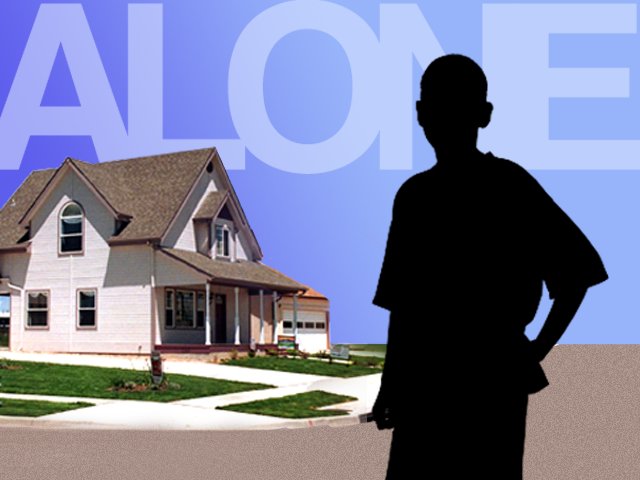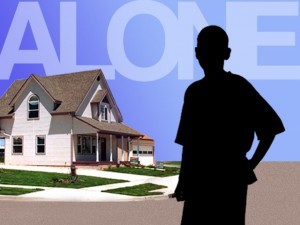Train kids before leaving them alone

 Stories about children left unsupervised have been springing up around the country. A 9-year-old was removed from her mother’s custody because she left the girl in the park while she worked her shift at McDonald’s. A mom is fighting criminal prosecution for leaving her 4-year-old son alone in the car for 5 minutes on a 50-degree day. A dad was arrested after his 8-year-old son skipped church to play.
Stories about children left unsupervised have been springing up around the country. A 9-year-old was removed from her mother’s custody because she left the girl in the park while she worked her shift at McDonald’s. A mom is fighting criminal prosecution for leaving her 4-year-old son alone in the car for 5 minutes on a 50-degree day. A dad was arrested after his 8-year-old son skipped church to play.
While the pundits debate the merits of helicopter vs. free-range parenting or the rise of the nanny state, the rest of us parents are left to puzzle over what’s OK and what isn’t when it comes to giving children independence and freedom. When can you let your kids ride their bikes alone to the park, or leave them at home while you run to the grocery store?
There’s no magic age when children are ready to be left alone, said MacKenzie Dunham, a Vancouver program manager at Children’s Home Society, a nonprofit organization that offers parent education.
“All of these things depend on the child, the environment, and the culture of the family and community,” Dunham said.
The only thing Washington state law makes clear is that you can’t leave anyone younger than 16 alone in a car with the motor running.
The state’s Department of Social and Health Services offers guidelines in a handout called “Home alone”: “Most authorities agree that leaving a 12-year-old alone at home for an hour or two is acceptable, but someone this age should not be responsible for other children. … In general, children under the age of 10 should not be left on their own, and babies and younger children should not be left alone even for a few minutes.”
Yet many of today’s parents remember being left alone in a car, or given the freedom to roam the neighborhood as a kid.
“A lot of the things we experienced growing up are certainly different now. One thing that remains the same is the role of the parent as teacher,” Dunham said. “Children need to be independent at some point. It’s your job as a parent to make them ready to do that. Kids are kids. They don’t know unless they’re taught.”
If you’d like your child to ride a bike alone to the park, for example, first you might ride with him and stop to discuss how to handle the tricky spots — a busy intersection, for example. Then you might make the trek again another day, riding behind him.
“You build up to independence,” Dunham said.
That’s the approach Battle Ground mom Carina Regan has taken with her 7-year-old son, Ethan. She walked him around the corner to his friend’s house until she felt confident he could do it on his own.
“For me, it’s baby steps,” Regan said.
She said she knows most of their neighbors, which helps her feel comfortable.
Knowing your surrounding community is key, Dunham said. So is knowing your child.
Vancouver dad Cameron Crabtree said he and his wife held the reins pretty tightly, but based their decisions on the temperament of each of their sons, now 14 and 19.
“We were trying to determine about each son — is he an initiator or an observer or a follower?
That would dictate where they could go, and who they could go with,” Crabtree said. “Do they get both cognitively and emotionally what we’re trying to build up in their lives?”
The teaching doesn’t stop when children reach their teen years, Dunham said.
If teens wants to go camping with friends, parents should quiz them: Where are you going? With whom? Will there be adults? What will you do if there’s alcohol? Is there cell phone service? What are the sleeping arrangements?
“You need to make clear, ‘I, as a parent, still have expectations for you, as my child, while you are not in my presence,” Dunham said.
Parents’ decisions about what their children are allowed to do are bound to vary, which is why talking with each other is often a better first line of action than calling 911, as bystanders did in the cases making national news.
“I think some people want to do the right thing, but they don’t know what their place is, so they go immediately to police. That isn’t always the best course of action, and can open door to intervention that’s not needed,” Dunham said.
Of course, she added, if you see a clear case of child physical abuse, call 911 or 1-866-ENDHARM.
Otherwise, start with a conversation.
“I think it is very important to first address the parent (be they a stranger or a friend) and validate the challenge we all face as parents,” Dunham said. She suggests saying something like, “Hang in there mom, this is really hard work, isn’t it? It looks like you’re really being challenged today. I’d like to help.”
